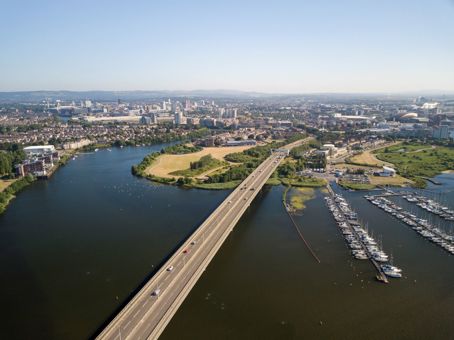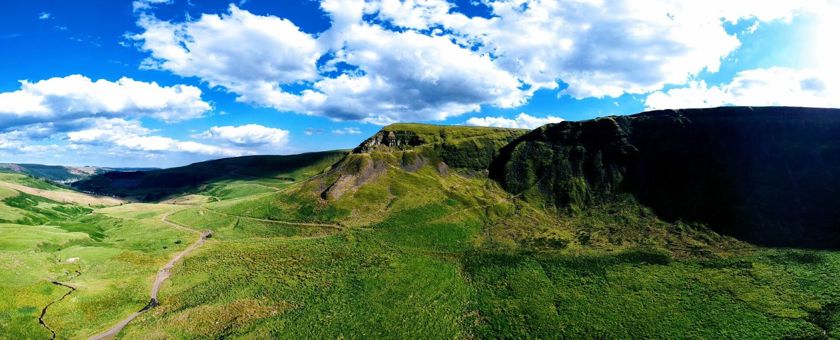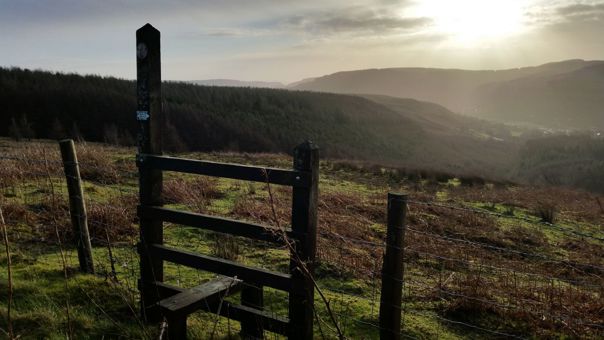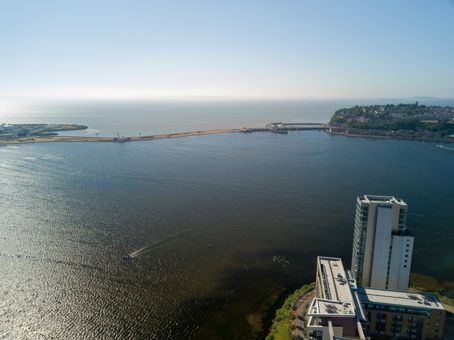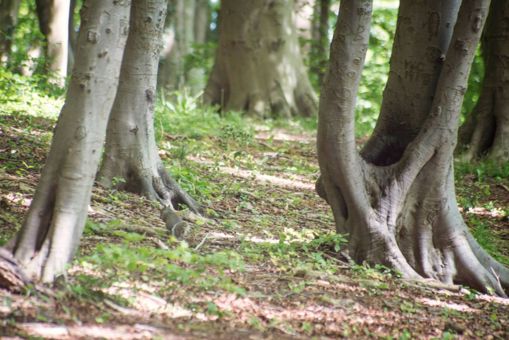Improving our health
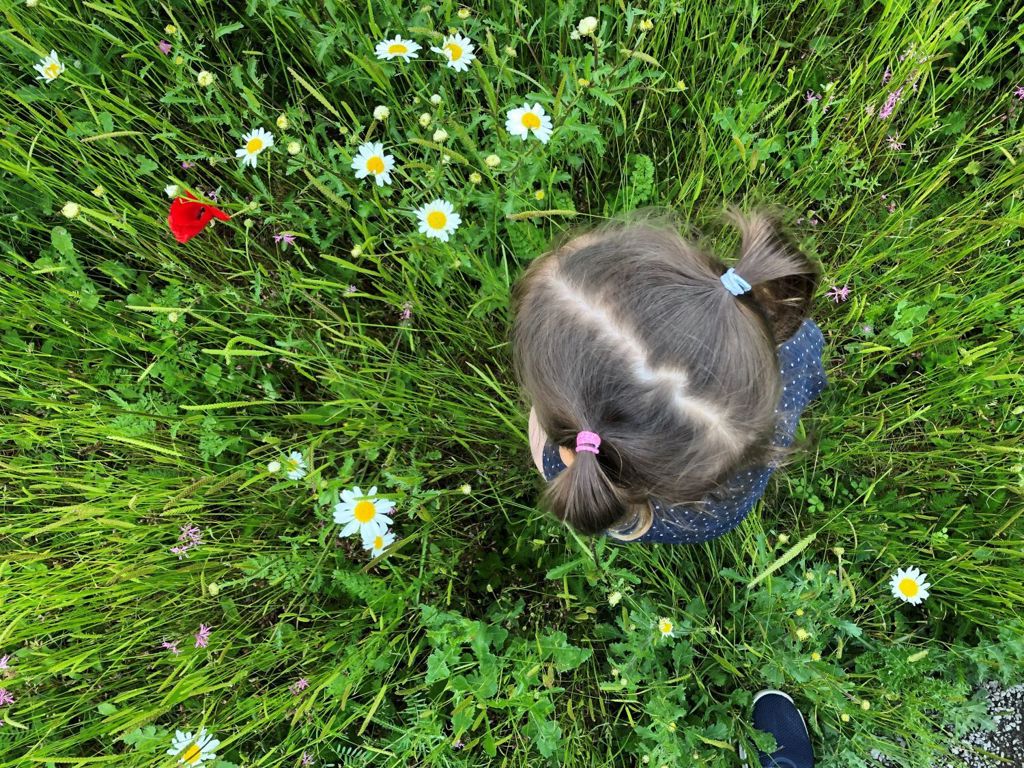
Why this theme?
Since 2010, the average life expectancy in Wales has started to decrease for the first time in decades. To put it even more bluntly, if you live in one of the least deprived areas of the country, then statistics show you’re likely to live eight years longer than someone from one of the most deprived.
The reasons behind why this is are complex. However, there is overwhelming evidence – not just in Wales, but across the globe – that where you live and work shapes your overall health and well-being. The link between poverty, inequality and issues surrounding mental health is also there, as recognised by experts and renowned bodies such as the World Health Organisation.

Here in South Central Wales, we believe that a healthy society isn’t one that simply waits for people to become ill. We all share a common responsibility to look at how our health is shaped by a broad range of social, cultural, political, economic and environmental factors, and to act accordingly for the benefit of future generations.
It’s worth noting that the Welsh Government already invests significantly in the National Health Service in Wales. A Journey to a Healthier Wales (produced by the Future Generations Commissioner for Wales) sets out a vision for a ‘whole system approach to health and social care’, with an emphasis on addressing physical and mental illness.
This joined-up ‘whole system’ approach needs to be embraced right the way across the board, especially in the face of increasing demands and challenges such as an ageing population, lifestyle changes and heightened public expectations. We need to be less rigid and more flexible in how we all work. We need to share our ideas, our methods, our data, in fact pretty much everything that can lead us down the road towards a healthier society.
The physical environment that surrounds us affects our health: the air that we breathe; our access to clean water; our choices about what to eat and drink; how much physical activity we do, and where we choose to do it. Lesley Griffiths, Minister of Environment, Energy and Rural Affairs in the Welsh Government, has said that “successful placemaking is key to creating sustainable places where people can lead active and healthy lives, and be proud to say where they come from.” Creating sustainable places is a priority for the Welsh Government and the planning process is a key in the door to us all leading healthier lifestyles. However, in order to open that door and realise the potential benefits, our health has to become a central part in placemaking.
Faced with these increasing demands and new challenges on our National Health Service and social care system, the ‘model’ needs to change. We need to find a balance between the more rigid mechanisms that we’ve used in the past, based on rational and logical planning, and a future path which values and recognises sharing and adopting new ideas, data, and co-creating novel approaches that meet the health needs of generations to come. We need to ‘commit to the cause’ and forge strong relationships and networks built on passion and pride.
The Welsh Government’s Natural Resources Policy (NRP) of 2017 identifies maintaining healthy, active and connected communities as one of the main opportunities associated with our natural environment. Natural resources can play a vital part in our physical and mental well-being. They can help us tackle public health issues such as air and noise pollution. They can help us counter conditions associated with physical inactivity such as diabetes and obesity. They boost the Welsh economy by providing us with opportunities to attract tourists. However, in order to realise those benefits, our natural resources need to be well planned and managed
Green spaces can be a focal point for community action and volunteering, helping to improve community cohesion and reduce antisocial behaviour. Unfortunately, low income areas often lack access to good quality green space, while the opposite tends to be true of higher income areas where health inequalities are significantly reduced. We believe it is up to us all to try and redress this imbalance, for the benefit of society as a whole.
It’s also worth noting that our environmental standards surrounding animal health, welfare and the protection of human health underpins Wales’ reputation for high quality produce, something that keeps us competitive across domestic and international markets. In Wales, 80% of the land is agricultural. With that in mind, the Area Statements process also gives us the opportunity to explore the relationship between our food systems and health objectives.
Many of the national challenges and opportunities for the sustainable management of natural resources identified in the NRP affect people’s health and well-being. By building a better understanding of the benefits and services that our natural resources provide, we hope to address some of those challenges and opportunities, including:
- Supporting preventative approaches to health outcomes, with a particular focus on the key public health issues of transport related air and noise pollution, tackling physical inactivity and addressing mental health
- Supporting action to tackle health and economic inequalities
What would success look like?
In looking to create a healthier future in Wales, there is a need for public health partners to work in harmony with others to achieve the best results for the population’s well-being. One key stakeholder, Public Health Wales (PHW), has already identified this as a strategic priority in the context of environmental public health, health impact assessment and policy development. Steps have been taken to build relationships both within and between public bodies in order to plug gaps and create opportunities that put public health at the centre of planning policy and practice.
At a strategic level, success in South Central Wales is for ecosystem services to deliver health benefits, while at the same time enhancing ecosystem resilience through delivery of the NRP. Ecosystems located in and around our urban localities provide the best opportunities and should be managed in a way that maximises the benefits they can provide. These may include recreation, cleaner air, improving protection from hazards such as flooding and wildfire, and enhancing mental and physical well-being. Nature-based solutions identified in the NRP which would enable this include:
- Increasing the green infrastructure in and around urban localities
- Increasing canopy cover and well-located woodland to improve the service value of ecosystems
Our ultimate goal is to work with partners to identify and deliver cost-effective, long-term nature-based solutions that benefit health through the mechanisms identified in our second theme Connecting people with nature.

Who have we worked with to date?
This theme was identified having analysed Public Service Board (PSB) well-being plans and the NRP. The dominance of the urban ecosystem in South Central Wales highlighted PSBs as important stakeholders. In this respect, the theme draws heavily on the analysis and findings of the Future Generations Commissioner for Wales’ report A Journey to a Healthier Wales. Rather than duplicating effort and resources, we will seek to work closely with the Future Generations Commissioner for Wales’ office regarding how NRW can contribute to the report’s findings, together with the part that our Area Statement can play in decision-making outcomes surrounding health.
What are the next steps?
Public bodies to take account of the beneficial role that the natural environment plays by integrating health and well-being into policy
For this theme to succeed, we must make sure that the natural environment is integrated into decision-making frameworks and schemes regarding health. The Area Statement can add value in terms of PHW initiatives, for instance the ‘Healthy Weight Healthy Wales’ strategy to tackle obesity. Although NRW doesn’t possess significant legislative, decision-making levers, we can still play an important role by ensuring that the natural environment is at the heart of planning. We will support PHW and others in the development of tools such as the Wales Health Impact Assessment Support Unit, evaluating our health and well-being while also sharing information with organisations, seeking overlaps and opportunities to work with each other. In addition, NRW has worked with PHW producing the Creating Healthier Places and Spaces for our Present and Future Generations guide aimed at public health professionals and planners. This explains how green spaces, clean air, access to healthy food, well-designed buildings, supportive local facilities and opportunities to be active can help people and communities thrive in Wales.
More recently NRW has worked with Cardiff and Vale University Health Board who produced the Annual Director of Public Health Report: Recall of the Wild. This report shines a spotlight on the role and importance of nature to our health and the need to both restore and reconnect with nature.
NRW will continue to represent the natural environment in Public Service Boards, supporting initiatives that seek health benefits, with this Area Statement influencing the next round of well-being assessments
This Area Statement will ensure that well-being assessments capture how the natural environment is valued by our communities, and that those communities are subsequently reflected in decisions made by PSB members. Food is also an important factor, as food production links land management with health benefits.
We will look to support health strategies such as ‘Healthy Weight Healthy Wales’, together with local initiatives providing access to healthy, sustainable food
We want people to bond with food, its production, and the landscape through initiatives such as Food Vale, a partnership of dedicated individuals, community groups, public sector organisations and businesses. Food Vale aims to build a thriving, healthy and sustainable food system in the Vale of Glamorgan. Working together, the key priorities are 1) A good meal for everyone, every day, 2) Thriving local food businesses which are supported and valued, 3) Think global, eat local.

How does what we’ve proposed deliver Sustainable Management of Natural Resources (SMNR)?
By embracing and adding value to schemes that promote working together to improve health and well-being across Wales, we aim to ensure that the natural environment becomes a key part of the decision-making process. We want nature-based solutions, such as green infrastructure, to be at the heart of changes that go above and beyond statutory requirements. By linking the Area Statement to the public health agenda, these tools and levers will be used to make sure that (a) the natural environment takes a prominent role in discussions, and (b) NRW forges equitable partnerships which ensure that decisions being made include the natural environment.

How can people get involved?
In South Central Wales, we are committed to working in an open and transparent way. With that in mind, we want to encourage people to connect with nature. The Area Statements process allows us to establish new ways of working which will be identified as we develop the next steps. Should you wish to find out more, please don't hesitate to email us at southcentral.as@cyfoethnaturiolcymru.gov.uk

